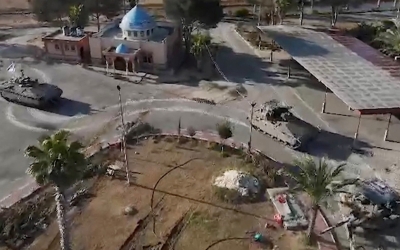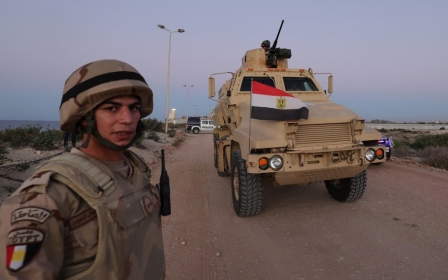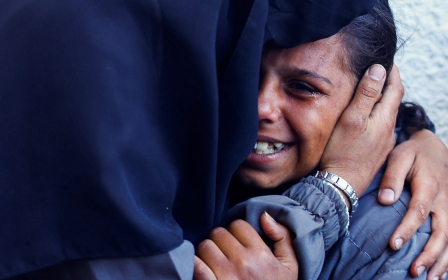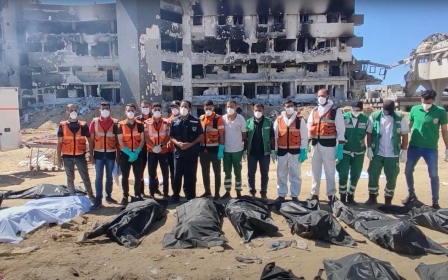War on Gaza: 80,000 forced to flee Rafah as Israel expands attacks
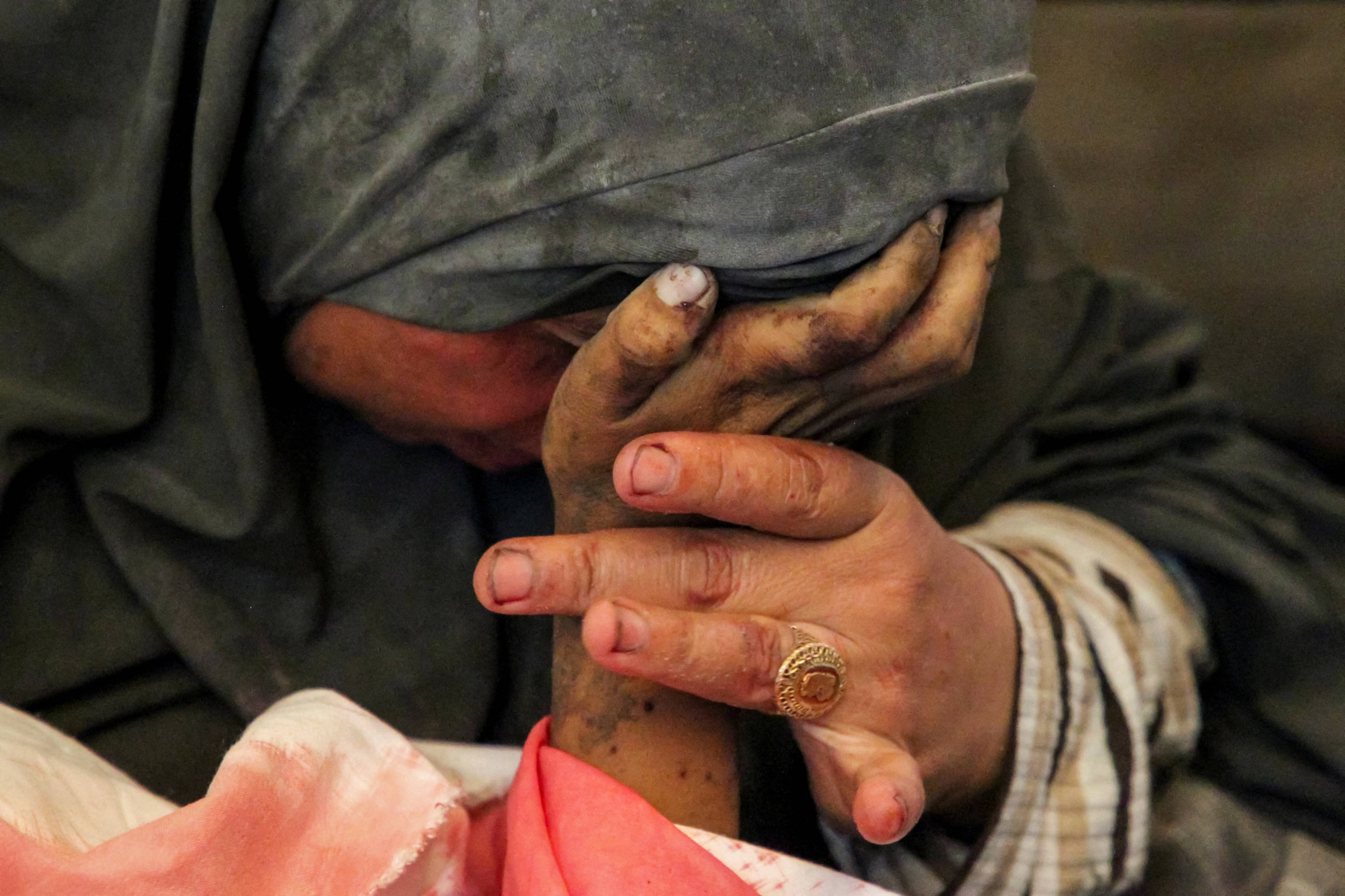
Around 80,000 Palestinians have been forced to flee again in recent days as Israel intensified attacks in Rafah and across the Gaza Strip, according to Unrwa.
The UN agency for Palestinian refugees said Thursday that people were “facing yet another forced displacement in the Gaza Strip”, leaving an “unbearable” toll on families.
People were forced to flee from eastern Rafah and parts of Gaza City as Israeli troops launched another ground assault on the Zeitoun neighbourhood overnight.
At least 60 people were killed in Israeli attacks in the past days, bringing the total death toll to 34,904 since 7 October when the war broke out, according to the Palestinian health ministry.
The armed wing of Hamas, the al-Qassam Brigades, released several battlefield updates on Thursday, indicating fierce street fighting in eastern Rafah and the Zeitoun neighbourhood.
New MEE newsletter: Jerusalem Dispatch
Sign up to get the latest insights and analysis on Israel-Palestine, alongside Turkey Unpacked and other MEE newsletters
The group said it killed and wounded several Israeli soldiers in a tunnel shaft ambush, targeted military vehicles using anti-armour missiles, and fired several mortar shells and short-range rockets at Israeli troops.
The Israeli military said it killed 50 gunmen and found 10 tunnel shafts since the operation in eastern Rafah began on Monday night.
The Rafah crossing with Egypt, seized by Israel Tuesday morning, continues to be closed, blocking the entry of vital aid.
In a post on the social media platform X, Matthew Hollingworth, the World Food Programme’s (WFP) country director for Palestine, said the UN agency’s operations “will go into standstill” in one to three days without the entry of food and fuel.
He said that WFP’s main warehouse in Rafah was now inaccessible.
“No aid has entered from southern crossings in [two] days. Thousands of [people] are on the move. Only [one] bakery is still working. Supplies of food and fuel in Gaza will only last 1-3 days. Without them, our operations will go into a standstill,” he said.
Meanwhile, Israeli leaders were busy reaffirming their determination to press on with the war after US President Joe Biden said he would withhold some weapons shipments to Israel if it invades “population centres” in Rafah.
Israeli Prime Minister Benjamin Netanyahu said in a video that “no amount of pressure” will “stop Israel from defending itself”.
“If Israel is forced to stand alone, Israel will stand alone,” he added.
Defence Minister Yoav Gallant issued a similar message, telling Israel's "enemies and friends" that it would do whatever was necessary to achieve its war objectives in Gaza and the north.
Cairo talks falter
In Egypt, another round of indirect negotiations ended without a breakthrough.
US, Qatari and Egyptian mediators have been speaking with delegations from Hamas and Israel in Cairo since Tuesday to advance a deal.
Hamas on Thursday said its delegation left the Egyptian capital back to Doha, where the group’s political office is based.
Izzat al-Risheq, a member of the group’s political bureau, stopped short of saying the talks reached a dead end and reiterated the group’s adherence to the proposal it accepted earlier this week.
“Israel’s invasion of Rafah and occupation of the crossing aims to block mediators’ efforts and escalate the aggression and genocide,” al-Risheq said in a brief statement.
“The Hamas movement affirms its commitment and adherence to the proposal it agreed to that was presented by the mediators.”
Hamas on Monday said it accepted a US-mediated ceasefire proposal that leads to the release of all Israeli captives in exchange for Palestinian prisoners, the end of the war and the full withdrawal of Israeli troops.
Netanyahu's office said the Palestinian group's stance was "far from meeting Israel’s core demands" and decided to send a delegation to Egypt for more talks, setting off the latest round of negotiations.
According to media reports, the Israeli delegation left Cairo on Thursday following two days of talks.
Al Jazeera Arabic said CIA director Bill Burns, who has been spearheading the talks, has also left Cairo for Washington.
An Israeli source told Haaretz that Burns' departure was an indication of the "complex situation" of the talks.
Middle East Eye delivers independent and unrivalled coverage and analysis of the Middle East, North Africa and beyond. To learn more about republishing this content and the associated fees, please fill out this form. More about MEE can be found here.


